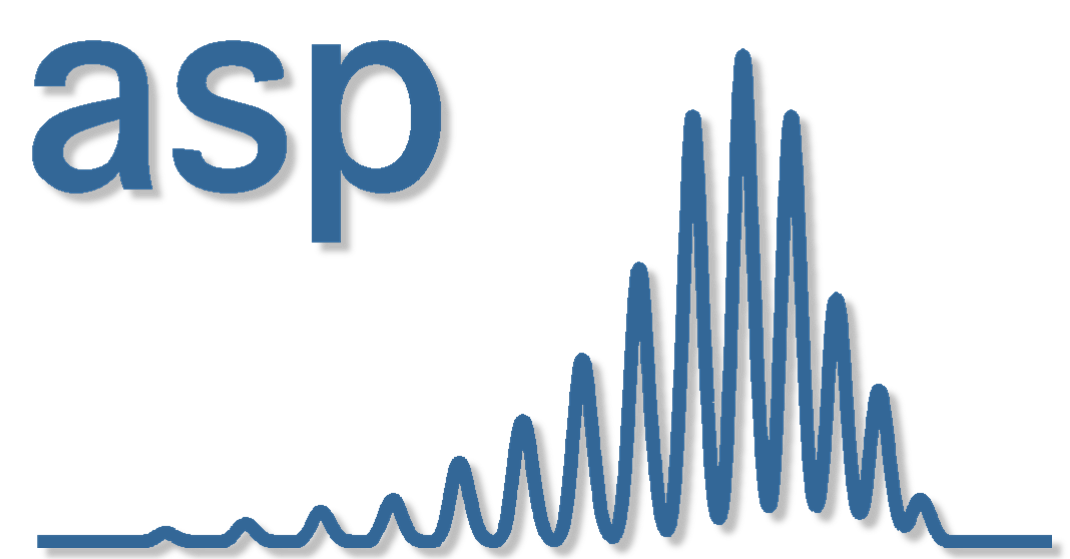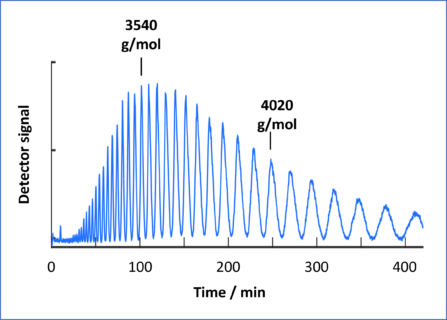Paper on highly efficient chromatographic separation of PEGs
In a new open-access publication, we present results of our long-lasting investigations on the chromatographic separation of polyethylene glycols (PEGs). Syntheses of polymers like PEGs always yield products with a distribution of molar weights. The broader such distribution, the less defined are the product’s physico-chemical properties.
The paper demonstrates how pure single homologs of PEG can be isolated from such distributed mixtures by reversed-phase chromatography. Such so-called monodisperse PEGs can serve as highly valuable standards for analytical techniques, or for producing pharmaceuticals with very well defined properties.
The work presents a thermodynamic analysis of detailed, analytical-scale experimental data. Based on this, highly accurate modelling approaches are established that will support the development of corresponding separation processes at larger scale.
Publication details:
Malvina Supper, Kathleen Heller, Jakob Söllner, Tuomo Sainio, Malte Kaspereit:
Separation of Molar Weight-Distributed Polyethylene Glycols by Reversed-Phase Chromatography — Analysis and Modeling Based on Isocratic Analytical-Scale Investigations.
Processes 10(11) (2022) 11
DOI: 10.3390/pr10112160
The work was supported by the German Science Foundation (DFG) through the Collaborative Research Centre CRC 1411 “Design of Particulate Products”.

